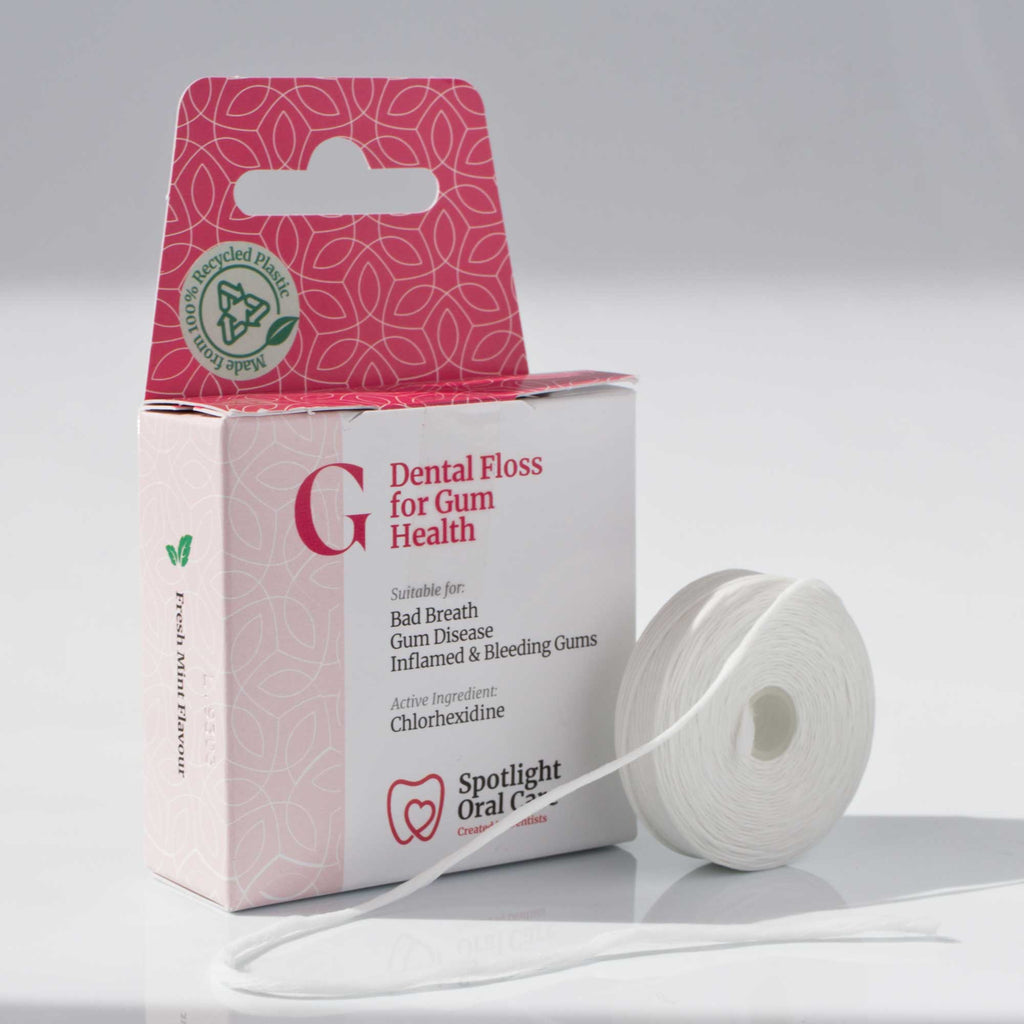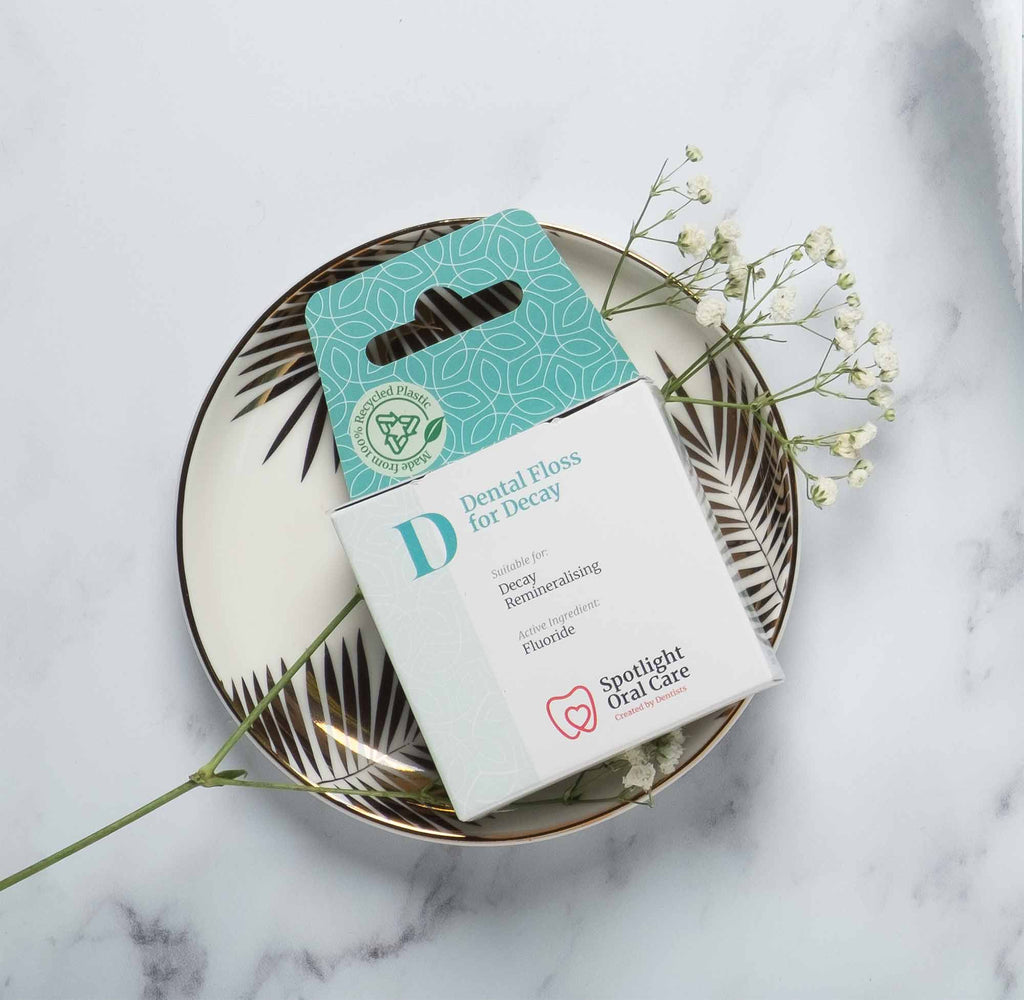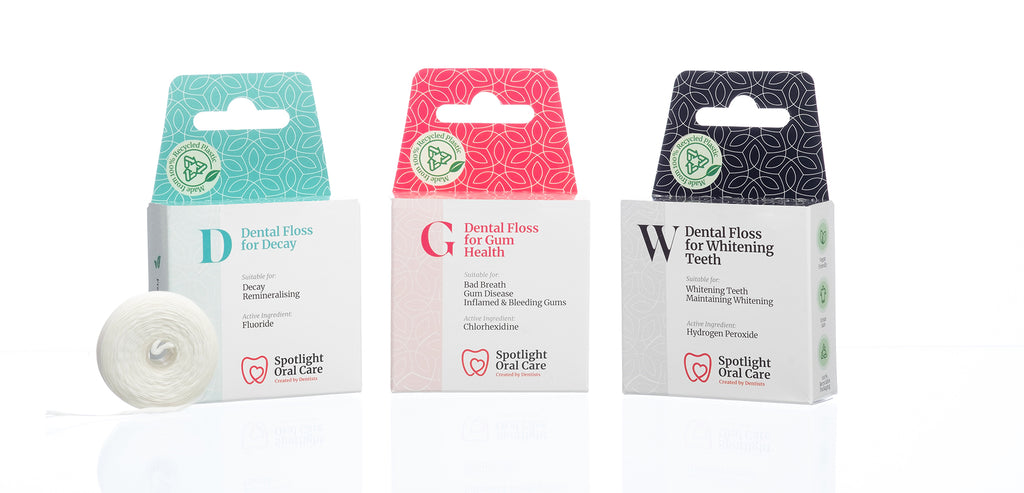Why should you floss your teeth?
Do you floss every day? Or do you struggle with flossing?
Flossing regularly helps to dislodge debris between teeth and helps alleviate bleeding and inflamed gums.
We understand that people often struggle to get the method right when flossing and it can be tricky, but with a little bit of practice you will get your flossing technique down to a tee in no time!
It’s worth noting that there’s no particular ‘correct way’ to floss, and often we see patients who are reluctant to floss once they see blood! It’s important to note that this is normal and the more regularly you floss, the less chance you have of experiencing bleeding gums.
How often should you floss?
Flossing should be an essential part of your daily routine. The importance of flossing is often underestimated but it is a key step to good overall oral health!
Did you know that about 50% of the fillings you’ll need in your lifetime start between the teeth at the point where the toothbrush can’t hit, which is why it’s so important to get floss down into the debris between your teeth.
We advise flossing before you brush your teeth to dislodge any food build up between the teeth, then brush anyway any debris when brushing.
How to Floss: The Basics
Flossing isn't complicated, but a little technique goes a long way! Here's how to get the most out of your flossing session:
- Grab about 18 inches of floss. Wind most of it around your middle fingers, leaving a short section to work with.
- Get in there! Gently slide the floss between your teeth. Curve it into a "C" shape against the side of one tooth.
- Up and down, not sawing! Use gentle vertical motions to clean along the tooth, going slightly below the gumline. Then repeat against the other tooth!
- Fresh floss for each gap. Unwind a bit more as you move to the next pair of teeth.
Tip: A floss pick can be easier to handle if you're new to flossing.
What floss do dentists recommend?
We find that a lot of our patients and customers struggle to floss every day whether it be pain, tenderness after flossing or difficulty accessing every aspect between teeth. We understand that flossing and cleaning interproximally is so important to maintain excellent oral health and hygiene.
There are a number of different ways to floss and finding the right option for you might take some trial and error. Choosing the right product will depend on a number of factors including your gum health or whether you’ve got orthodontic work such as braces.
To cater for this, we’ve created a range of products to accommodate your individual oral health needs, including traditional floss and our brand new water flosser.
Flossing Myths: Time for Some Truth
Let's be honest, flossing has a bit of an image problem. Don't let these common misconceptions stop you from rocking a healthier smile!
|
Myth |
Fact |
|
"Flossing makes gaps between my teeth bigger." |
Nope! Flossing removes gunk that's already there, it doesn't create new space. Think of it like cleaning out your gutters – leaves don't cause the gutters, they just clog them up! |
|
"My gums bleed when I floss, that means I should stop." |
Actually, it's the opposite! Bleeding gums are a sign they're irritated and need flossing. Be gentle, and the bleeding will lessen as your gums get back in shape. |
|
"Flossing is only for if I get something stuck." |
Those bits of food are annoying, but the real enemy is plaque – that sticky invisible film that leads to cavities and gum disease. Only floss gets rid of it! |
|
"I have braces/crowns/a bridge, so I shouldn't floss." |
It's even MORE important to floss with dental work! Food and plaque get trapped easily around appliances. Your dentist can show you specific techniques or recommend tools like floss threaders. |
|
"If I brush really well, flossing isn't necessary." |
Your toothbrush just can't reach some spots! Flossing gets the sides of your teeth where even the best brushing misses. |
|
"My teeth are naturally tight together, floss doesn't fit." |
Super-thin floss options exist, plus waxed floss glides more easily. If it's still a struggle, ask your dentist – tight contacts might be a sign of hidden decay. |
What floss is best to use?
Spotlight Oral Care offers three different types of traditional floss, each dipped in a different active ingredient to help battle common dental concerns including decay, bleeding gums, and whitening. Our floss is unique because they're made from 100% recycled ocean plastic!
 - Dental Floss for Gum Health
- Dental Floss for Gum Health
Our floss for Gum Health contains the active ingredient Chlorhexidine, proven to help with bleeding gums. We would recommend this floss if you’re experiencing bad breath, inflamed and bleeding gums or gum disease.
 - Dental Floss for Teeth Whitening
- Dental Floss for Teeth Whitening
Our floss for Whitening contains the active ingredient Hydrogen Peroxide which is proven to whiten teeth. A lot of stains build up in the areas between the teeth where your toothpaste cannot penetrate. By using a floss which contains Hydrogen Peroxide, we can deliver this active ingredient to these stained areas breaking down the stains and improving the overall look of the teeth.
 -Dental Floss for Decay
-Dental Floss for Decay
Our floss for Decay is specially designed to contain the active ingredient Fluoride that is clinically proven to remineralise enamel and reduce decay. Most decay happens between teeth and by using a floss with this active ingredient which targets decay, we can actively deliver fluoride to where it is needed most.

-Water Flosser
Water flossers have been shown to be five times more effective at removing plaque between teeth vs using manual floss. The water flosser is ideal for cleaning around dental bridges, braces, implants and crowns. Water flossers offer a more gentle alternative to traditional floss and are less likely to cause gums to become inflamed or bleed.
A water flosser is ideal for people with braces, bridges, implants, crowns or periodontal pockets but it’s suitable for anyone who wants a cleaner, fresher mouth!
Why will you love it?
- It will help you achieve a whiter smile
- Water flossing will reduce bad breath
- Offers a more gentle alternative to traditional floss
- Using a Water Flosser will improve your gum health by reducing bacteria below the gumline
- Water Flossers are amazing for those with braces

